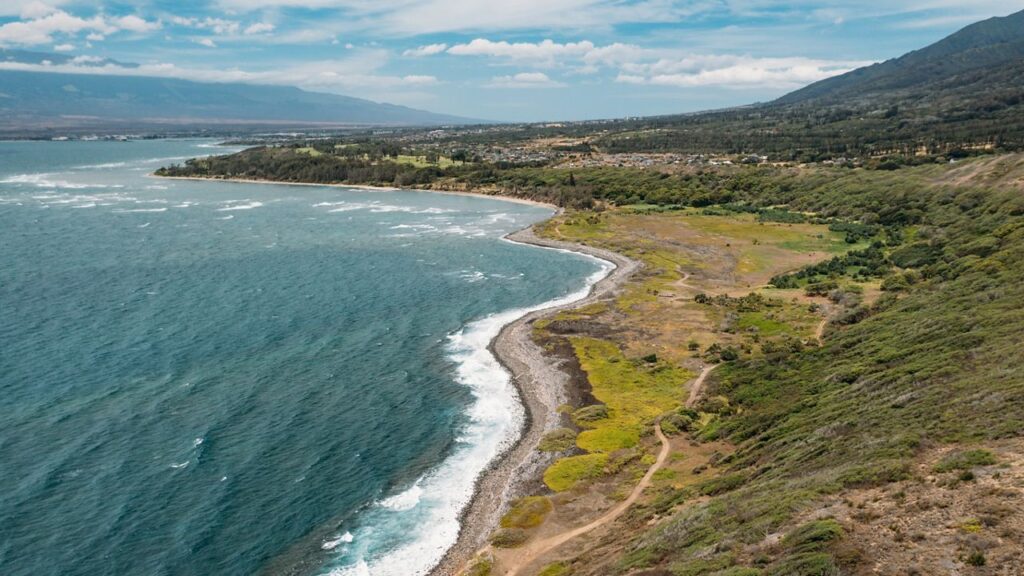Hawaii Land Trust and the University of Hawaii’s John A. Burns School of Medicine have teamed up to launch a new career pathway program focused on developing place-based behavioral health services, especially for Native Hawaiian and Pacific Islander communities.
The program, called Mohala Liko Lehua, will provide six fellows — three post-Doctor of Psychology and three post-Master of Social Work trainees from JABSOM — with the opportunity to work with Hawaii Land Trust’s existing place-based programs, weaving in behavioral health services as they are guided by mentors over the course of a year.
Hawaii Land Trust, also known as HILT, has purchased eight land preserves for conservation, and engages the community by running educational programs on the properties. HILT President Olu Campbell told Spectrum News in a phone interview he believes many of the challenges people in Hawaii face stem from historical and ongoing cycles of disconnection to the land. Which is why HILT works to protect and grow relationships between people and ʻāina, the Hawaiian word for land and earth, which also encompasses the reciprocal relationship between land and people as they provide and care for one another.
Many participants reported positive mental health benefits after attending HILT’s programs, according to Campbell, and the nonprofit was curious to learn if these positive effects were something that they could deliberately cultivate. Campbell, and his colleagues at HILT, started reaching out to people who work in healthcare to learn more about how people were trying “to bridge that gap between the more formalized health care system and what we know are the organic benefits of health and wellbeing that result from ʻāina, connection to place, connection to community, connection to culture, all those things.”
Dr. Robin Miyamoto, from JABSOM’s Department of Native Hawaiian Health, was in the process of creating a career pathway program for behavioral health professionals, as there is a large need for more in Hawaii, especially in the wake of the Aug. 8, 2023, Maui wildfires, who can provide place-based and culturally appropriate services.
“When the Maui wildfires devastated the communities of Lahaina and Kula, the impact of a lack of behavioral health support, absent an understanding of the pre-existing cultural and historical trauma impacting the affected communities, became abundantly clear,” said Miyamoto in an email to Spectrum News Hawaii. “Much of the trauma experienced by survivors occurred as a result of interactions with ‘the helpers’ rather than the wildfires themselves. The latter’s efforts, though well-intentioned, resulted in chaos and inefficiencies that underscored the need for a formal interdisciplinary program that includes culturally informed, cross-cutting didactics, supervision,and peer and near-peer mentoring to benefit our NHPI community.”
Campbell described it as natural to partner with JABSOM for this fellowship because HILT already runs several ʻāina-based education programs, which include field trips and volunteer work where they might learn about ecological and cultural concepts, but now these programs will be supported by behavioral health specialists who can improve students’ outcomes.
“Instead of those programs just being focused on educational outcomes, we added an additional layer of impact,” said Campbell.

Mohala Liko Lehua Fellows. From left to right: Teara Caston, Nana Clemons, Olivia Ornellas, Jrae Viela, Alana Hu, and Amber Chun. (Photo courtesy of JABSOM)
A team of professionals at JABSOM will train the six fellows, who will work directly with HILT staff, educators and stewards who are on the ground, to expand on existing HILT programs. Ideally, the learning will go both ways, said Campbell, with HILT staff learning about behavioral health, and the fellows learning about place-based education. Then, when the fellows gain their licensure, they can better serve communities in Hawaii and will hopefully mentor the next generation of practitioners, added Miyamoto.
While the program has not yet started, Campbell imagined a scenario where students come to a preserve to learn about watersheds as they might have through an existing HILT program, but now the activity will be co-designed by the fellows and also includes a focus on friendship building. Another scenario might entail individual or group therapy that is set in nature, helping participants feel more connected and grounded during the process. Perhaps students will attend a HILT program that teaches about kilo, a Hawaiian method for observing, but now the lesson might include a discussion of both external and internal observation.
“Integrating place-based behavioral health services into the current HILT initiatives for students of all ages offers a powerful opportunity to foster resilience and equip participants with essential coping skills,” said Miyamoto. “These tools will empower individuals to navigate challenging experiences and emotions more effectively.”
HILT will also collect data via the Mohala Liko Lehua program to quantify the benefits of connecting with nature, with an emphasis on learning how it may help children. After students attend a HILT program, they might be asked to fill out a questionnaire about their mental health, with age-appropriate questions about how they feel before and after the program.
“If it is effective, then we’ll be able to take that data, and alongside others who are working in this space, be advocates for this type of healthcare programming that we believe is more holistic,” said Campbell.
HILT and JABSOM plan to continue Mohala Liko Lehua for at least the next four years, with the goal of training 24 fellows. The program is subsidised by the Health Resources & Services Administration, Maui United Way, the University of Hawaii, the Office of Hawaiian Affairs, and other contributors, although more funding is still needed, according to HILT organizers.
Michelle Broder Van Dyke covers the Hawaiian Islands for Spectrum News Hawaii. Email her at michelle.brodervandyke@charter.com.

